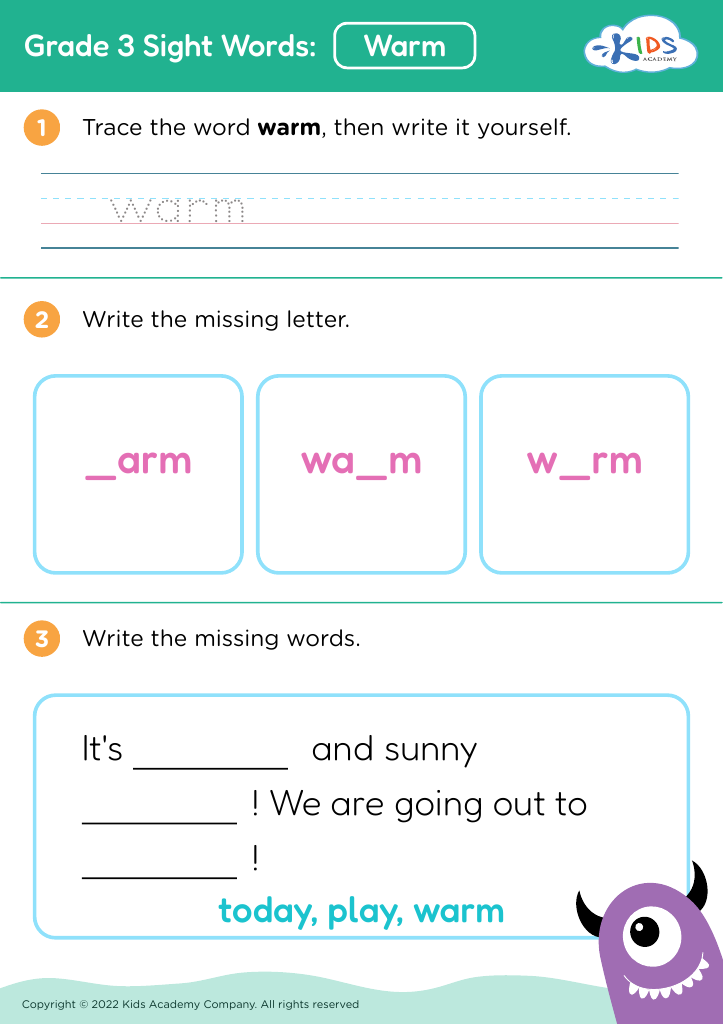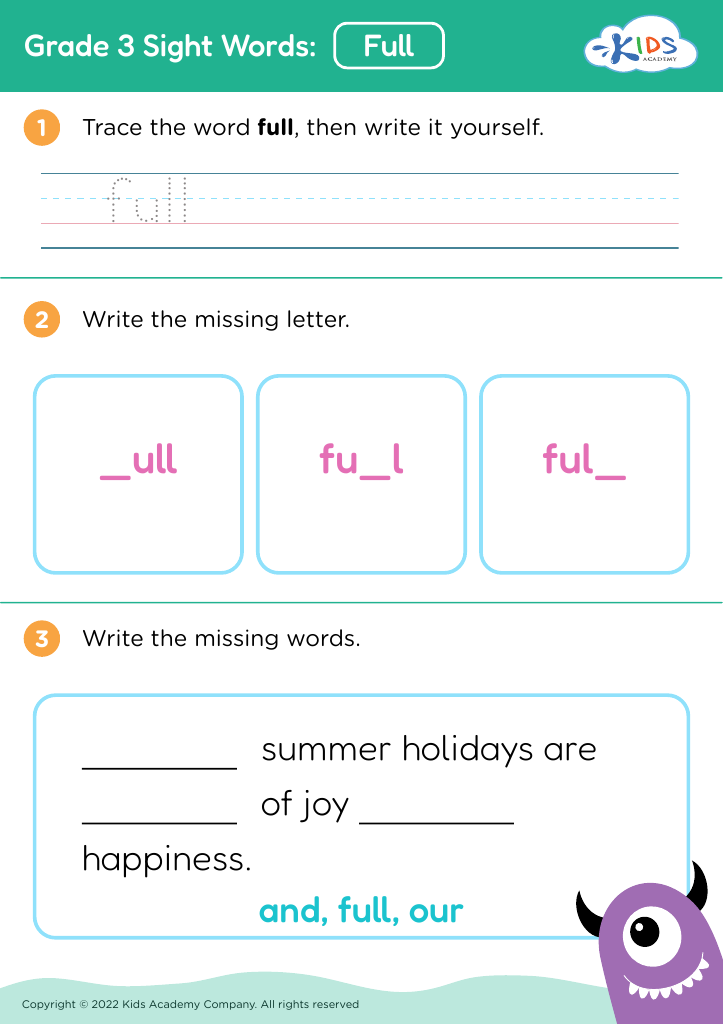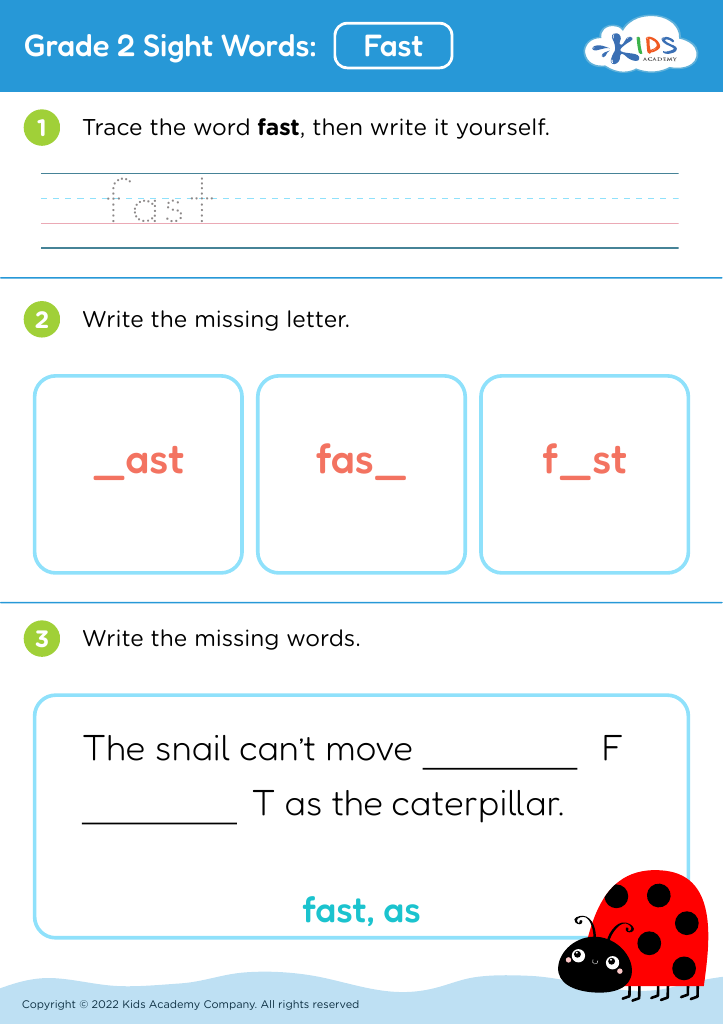Math problem-solving Building Vocabulary Worksheets for Ages 7-8
5 filtered results
-
From - To
Unlock your child's potential with our Math Problem-Solving Building Vocabulary Worksheets for ages 7-8. These expertly designed worksheets not only enhance mathematical skills but also build essential vocabulary crucial for problem-solving. Through engaging and age-appropriate activities, children will learn to interpret math problems, use correct terminology, and develop stronger reading comprehension abilities. Perfect for home or classroom use, our worksheets provide a comprehensive approach that supports both math and language learning. Give your child the tools they need for academic success with our fun and educational resources! Transform challenges into confidence and mastery today.
Caring about math problem-solving vocabulary development for children aged 7-8 is crucial, as it establishes the foundational language and comprehension skills necessary for later academic success. At this age, children transition from simply recognizing numbers to solving more complex math problems. Understanding math-specific vocabulary like "sum," "difference," "product," and "quotient" allows children to grasp and execute operations more accurately.
Additionally, math problem-solving vocabulary aids cognitive development. With a strong vocabulary, children can categorize, process, and articulate mathematical concepts and strategies effectively. This early grounding builds their confidence and reduces math anxiety, fostering a more positive attitude toward the subject.
Furthermore, comprehensive math vocabulary enhances critical thinking. When students understand terms deeply, they can better analyze, compare, and evaluate different problem-solving methods. This isn't merely about memorizing words but internalizing concepts that will streamline their future learning processes.
Parents and teachers who prioritize vocabulary help bridge potential language barriers that could impede understanding. This supports equitable education by ensuring that every child, regardless of background, has access to the tools needed for success. Thus, investing in math problem-solving vocabulary builds a strong educational foundation, promoting both current competence and future academic and real-world proficiency.





















.jpg)















